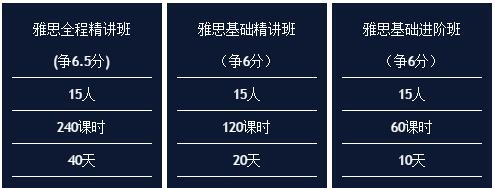劍橋雅思8口語Test1Part3范文
2017/4/6 18:26:33來源:新航道作者:新航道
摘要:劍橋雅思系列是同學們在備考中最好的教材之一,所以同學們在備考的時候是要準備一些這方面的資料的。新航道雅思 小編今天為大家帶來關于劍橋雅思8口語Test1Part3范文,希望可以幫助廣大雅思考生輕松備考雅思。更多雅思備考信息,請關注新航道上海雅思。
劍橋雅思系列是同學們在備考中最好的教材之一,所以同學們在備考的時候是要準備一些這方面的資料的。新航道雅思 小編今天為大家帶來關于劍橋雅思8口語Test1Part3范文,希望可以幫助廣大雅思考生輕松備考雅思。更多雅思備考信息,請關注新航道上海雅思。
劍8Test1Part3雅思口語模板-organization
1. What kinds of organization want to find out about people’s opinions?
很多組織會在乎顧客的想法和員工的想法,當然其中主要是企業,因為顧客的選擇和員工的去
留直接關系他們的興衰存亡。
2. Do you think that questionnaires or surveys are good ways of finding out people’s opinions?
可以認為好,也可以認為不好,考生可以選擇任意一方面作答。好可能因為成本低廉,不好也
可能因為效果不理想或結果不具有借鑒性或代表性。
3. What reasons might people have for not wanting to give their opinions?
當自己忙著去做某事時被人打擾肯定不會樂意,所以“忙”、“有事”常常是大家最常用的借口。 有時也可能是因為涉及隱私,或涉及敏感內容而不便透露。
4. Do you think it would be a good idea for schools to ask students their opinions about lessons?
考生完全可以說自己沒有思路,因為對于這個問題本身,大量的教育專家就有很多不同的觀點, 有些觀點甚至可能完全相反,大家莫衷一是。當然,這個做法本身有優點,也有缺點,考生可
以在這里簡單概述,在之后的問題中再詳細作答。
5. What would the advantages for schools be if they asked students their opinions?
優點當然是可以為學生按需設計課程,學生想學什么就可以學什么,甚至可以挑老師,學生學
習起來就更加有主動性和積極性,同時學校也可以更好地為學生服務,滿足學生的多項需求。
6. Would there be any disadvantages in asking students’ opinions?
缺點是學生可能會有不切實際的意見、想法,但是學校既然征求意見卻不能實施,反而會導致
學生的不滿情緒。同時,如果學校積極回應學生意見的話,可能又面臨大幅變革的局面,不僅
可能會有較高的改革成本,也可能會產生難以預計的結果。
名師點題劍橋雅思8口語
考生可在回答中使用的實用詞匯
1. What kinds of organization want to find out about people’s opinions?
customer, client, staff, enterprise, care about, be concerned about, be interested in, feedback, improve, renovate.
2. Do you think that questionnaires or surveys are good ways of finding out people’s opinions?
Yes: low cost, cheap, affordable, easy to plan/operate.?No: ineffective, not representative, false information, slow response, difficult to digitize/process.
3. What reasons might people have for not wanting to give their opinions?
busy, occupies, none of someone’s business, sensitive topic, too personal, too private, having no idea, being clueless.
4. Do you think it would be a good idea for schools to ask students their opinions about lessons?
school administrator, board, management team, solicit opinions, construct questionnaire/ interview/survey, developmental psychologists, educationists, contradictory views.
5. What would the advantages for schools be if they asked students their opinions?
construct course according to needs, promote active learning, address students’ needs, meet students’ demands.
6. Would there be any disadvantages in asking students’ opinions?
unrealistic thoughts, hard to put into operation, inoperable, reform, overhaul, high cost, unexpected consequence, lack of foresight.
名師點題劍橋雅思8口語
參考回答(每個問題兩個回答)
1. What kinds of organization want to find out about people’s opinions?
Well, I guess a lot of organizations would do, especially those non-governmental enterprises. I believe they would pay more attention to what their customers and staffs think, because their choices and decisions directly affect the survival and demise of the company.
It’s hard to say what kinds of organization care to find out about people’s opinions, but I do know what kinds of organization don’t care: the governmental organizations at various levels of an authoritarian regime, because they don’t care about what you think, they only demand blind submission.
2. Do you think that questionnaires or surveys are good ways of finding out people’s opinions?
Yes, I do think so, because the cost of doing questionnaires or surveys is very low and they are easy to operate. The surveyors are easy to train. Samples can be easily collected. What else could you ask when you have cheap source of data and easy-to-operate scheme? So I’m totally for questionnaires or surveys.
No, I don’t think data collected through questionnaires or surveys can truly reflect people’s thinking. Look, would you happily give out what you think when people solicit information by bugging you. So I never trust questionnaires or surveys.
3. What reasons might people have for not wanting to give their opinions?
Well, I don’t know about others. But I always use“busy”or“I’m occupied at the moment”as excuses to slip off. I guess there must be a lot of others like me.
I guess some people would feel reluctant if asked to give their personal information or asked to give opinions on sensitive issues. Of course nobody wants any trouble.
4. Do you think it would be a good idea for schools to ask students their opinions about lessons?
I’m sorry. I just have no idea about this, because this topic itself has been disputed by a lot of experts and educationists. So far no consensus has been made. Some of their ideas even contradict each other. So I don’t really know.
Well, yes and no. Asking students their opinions is a great leap forward toward education reformation. But it has both advantages and disadvantages, all of which have to be thought through and carefully measured before any major steps are taken.
5. What would the advantages for schools be if they asked students their opinions?
One of the major advantages is that schools can customize their courses according to students’ needs that students can freely select teachers and textbooks. By doing so, it is believed that students will be more active or motivated to engage themselves in learning.
The most obvious advantage is that schools can get not only first-hand but also timely feedback from students about the education service they provide and therefore will be able to make adjustment to better meet students’ needs. Apart from this, there must be many other advantages, but this is the most obvious one I can think of now at this moment.
6. Would there be any disadvantages in asking students’ opinions?
Well, once schools start asking students’ opinions, all kinds of ideas will start to pour in, realistic and unrealistic, constructive and unconstructive, even destructive. It’ll only make schools look bad if schools don’t make any response to students’ suggestions. But what can you do if all that students ask is less work, more play. I mean, children are just not old, mature enough to get involved in this. If schools want to reform, they should rely on their own experiences and wisdom.
What disadvantages could there possibly be? I don’t believe there are any disadvantages. We should regularly consult students’ opinions on how we should do better about education. After all, we as“cook”should“cater to”the taste of our guests, in this case, our students.
以上就是小編為大家帶來關于《劍橋雅思8真題口語》供大家閱讀參考,新航道雅思資料頻道將第一時間為考生發布最全、最新、最專業的雅思資訊及雅思考試資料及機經.
更多雅思培訓的相關信息,請關注上海新航道雅思頻道 。
如需下載雅思相關資料請與上海新航道雅思頁面 的“在線客服”聯系。
或在下方注冊表格內,請提交“姓名+電話+郵箱”,我們將于24小時內發送給你!
免費獲取資料
熱報課程
- 雅思課程
| 班級名稱 | 班號 | 開課時間 | 人數 | 學費 | 報名 |
|---|
免責聲明
1、如轉載本網原創文章,情表明出處
2、本網轉載媒體稿件旨在傳播更多有益信息,并不代表同意該觀點,本網不承擔稿件侵權行為的連帶責任;
3、如本網轉載稿、資料分享涉及版權等問題,請作者見稿后速與新航道聯系(電話:021-64380066),我們會第一時間刪除。
全真模擬測試
制作:每每









